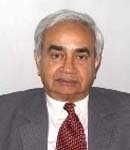South Asian Dialectic
India-Pakistan Relations: Modi’s Options
19 May, 2014 · 4444
Prof PR Chari makes three policy recommendations in the wake of the recently concluded Indian general elections
How will Prime Minister designate Narendra Modi deal with Pakistan? He made a passing reference to China when he visited Arunachal Pradesh during the election campaign. An uncomplimentary mention of Bangladesh was also made as the major originating source of illegal immigrants, who will be speedily sent back home if the BJP came to power. But no reference to Pakistan was made, which is intriguing, given Modi’s RSS roots and earlier rhetoric lambasting “Miya Musharraf.” The BJP’s election manifesto, too, offers no clues. It commends a foreign policy based on pursuing friendly relations [with nations] “in our neighborhood… [and that] India shall remain a natural home for persecuted Hindus and they shall be welcome to seek refuge here.” Surprisingly, there is no evidence to discern Modi’s likely Pakistan policy.
It would be the understatement of the year to notice that Modi’s coming to power in New Delhi has caused great anxiety in Pakistan’s ruling elite. Modi has repeatedly stressed that the need for development and reviving the economy are his main priorities. Foreign policy, one suspects, will be tailored to promoting these objectives. But, he is also seen as a primordial nationalist, and naturally hawkish towards Pakistan and China. Modi has sidelined practically all the senior leaders in the BJP, but praised Atal Behari Vajpayee for adopting a foreign policy that sought “peace and strength.” Still, this additional information is not very helpful in discovering Modi’s Pakistan policy.
It would therefore be useful to lay out India’s abiding apprehensions regarding Pakistan. The US State Department has noted in its Country Reports on Terrorism 2013 (April 2014) that: “Continued allegations of violations of the Line of Control between India and Pakistan, Pakistan’s failure to bring the perpetrators of the 2008 Mumbai attacks to justice, and activities of Pakistan-based terrorist groups remained serious concerns for the Indian government.” We can reasonably conclude that India’s major security concern with Pakistan arises from its support to cross-border militancy and terrorism.
The other threat from Pakistan arises from its testing the 60-km nuclear-capable short-range Hatf IX (NASR) missile, identified as a tactical nuclear weapon for battlefield use. Pakistan claims it would provide “full spectrum deterrence” by lowering the nuclear threshold. What it signals is that if New Delhi should launch a conventional attack against Pakistan, say in response to a major terrorist strike, Islamabad could threaten a response with tactical nuclear weapons. India, thereafter, would need to mull over whether to proceed up the ladder of nuclear conflict, or restrict its response to the verbal level. How Modi will deal with this nuclear blackmail will be his earliest challenge.
Relations with Pakistan will have to cater for the inclinations of the RSS, which had massively deployed its manpower for Modi’s election campaign. Will they quietly withdraw into the background? Their minimum expectations would include “non-appeasement’’ of minorities inside India, and not making "concessions" to Islamic countries abroad. So, what are Modi’s options? Three are discernible:
• First, take seriously Pakistan’s professions that it wants to transform India-Pakistan relations from conflict to cooperation, invigorate the composite dialogue, and improve trade and people-to-people relations. More nuclear CBMs like Risk Reduction Centres could come on the table, apart from hardy perennials like the Siachen and Sir Creek disputes. But, these negotiations could only succeed if Pakistan is pressed by Washington and Beijing. They need to be convinced that Pakistan harbours the world’s major security problems - terrorism, Islamic fundamentalism, nuclear proliferation and state failure.
• Second, proceed on the assumption that dealing with Pakistan is futile until it sets its own house in order. Demonstrably, Nawaz Sharif has no control over the Pakistani Army, or elements of Pakistan’s foreign policy, like relations with India, Kashmir or nuclear weapons. The Pakistani Army and the mullahs are the chief patrons of the Lashkar-e-Toiba, which they believe to be a strategic asset for use against India. They also, alongside Pakistan's terrorist groups, disfavour trade with India since it disrupts their basic agenda. Modi could undertake a cost-benefit analysis to see what are the opportunity casts in sidelining Pakistan while promoting other aspects of South Asian integration.
• Third, proceed on the basis of strict reciprocity, and deal with Pakistan exactly as it deals with India. Be friendly when Pakistan is friendly, and nasty when it acts nasty. And, if Pakistan says one thing and does the opposite, do exactly the same. India has accommodated Pakistan far too long, for example in the Simla Agreement (1972), by initiating the Lahore Agreement (1992), and entering the Sharm-el Sheikh arrangement (2009) with its snide reference, “Pakistan has some information on threats in Balochistan and other areas.” In all these cases Pakistan pursued its own self-interests taking advantage of India’s good faith. How Modi will react to cross-border provocations needs an early and clear policy enunciation.
Speculation is rife about who will be included in Modi’s Cabinet, and be his key bureaucrats, especially the next National Security Adviser. But, the buck stops with Modi. Which option will he choose in dealing with Pakistan?


